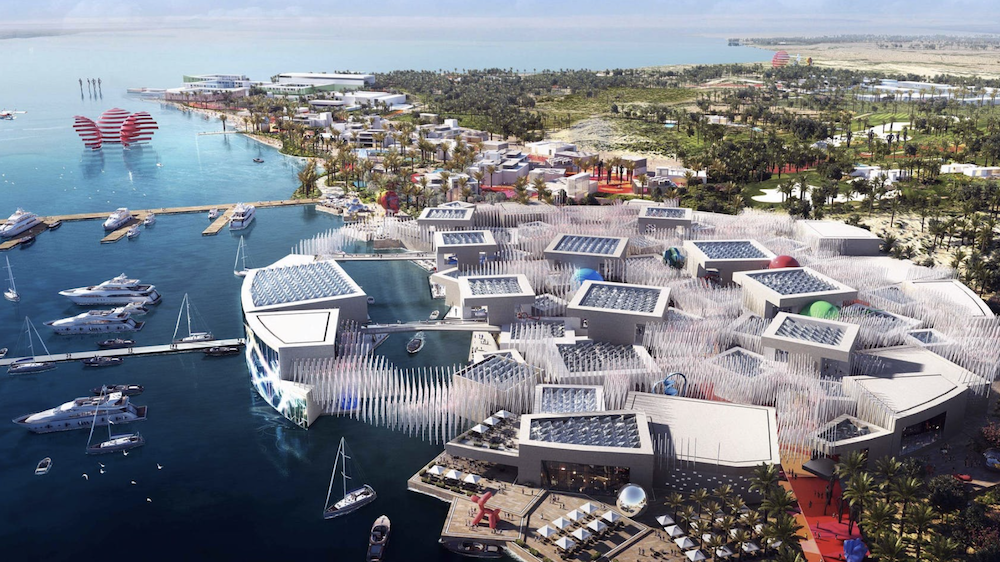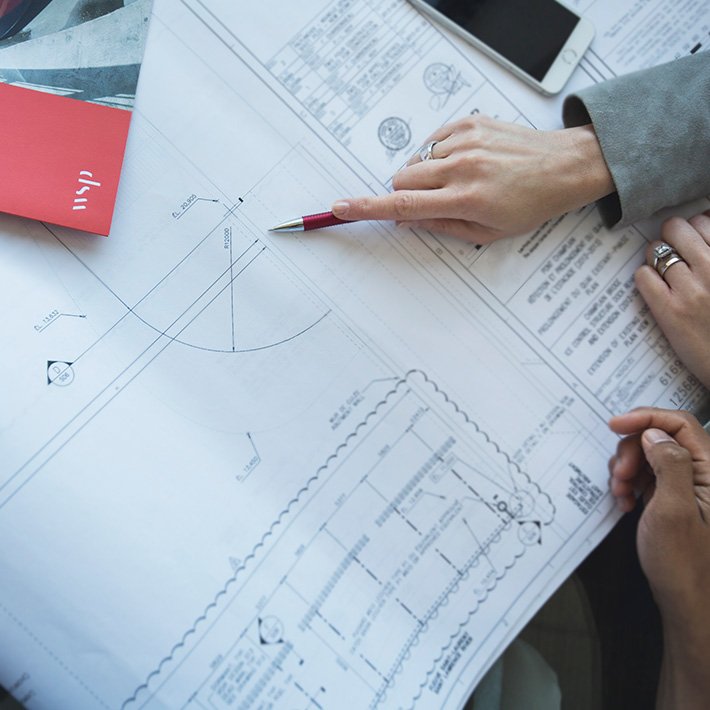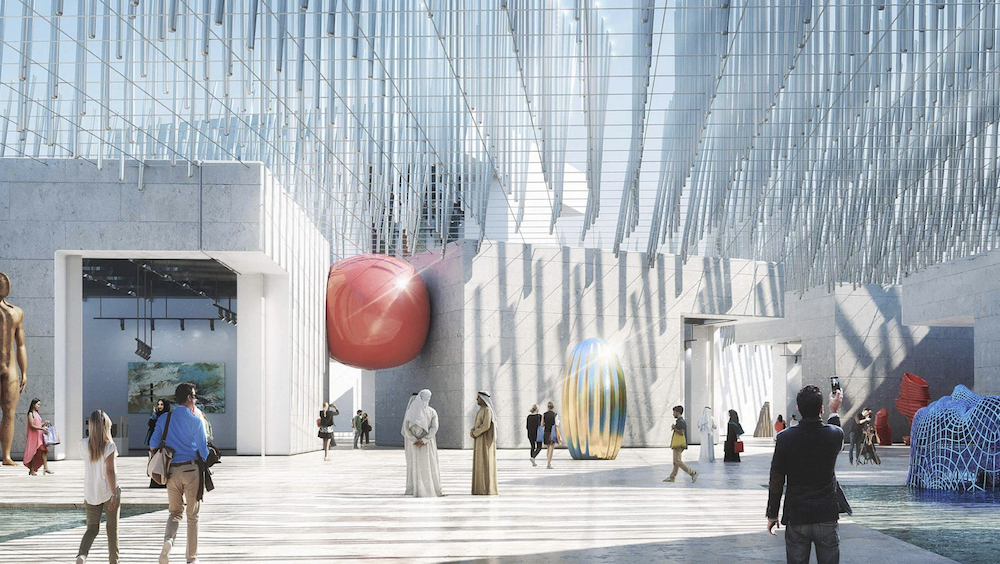Who’s Who: Dr. Ghadah Talal Angawi, Saudi writer, enterprise government and coaching and management guide

How Saudi female engineers are transforming a male-dominated industrial environment
DUBAI: Despite recent advances, women remain a minority in the science, technology, engineering, and math (STEM) professions, particularly in the Middle East and North Africa.
However, with a growing number of Saudi women choosing STEM careers and contributing to a more balanced work environment, the UK’s industrial sector is leading the way in terms of inclusion.
Razan Alraddadi, a development specialist at Amaala – one of the Kingdom of Vision 2030’s megaprojects planned on the Red Sea coast – and Ruaa Mahmoud, a graduate consultant at WSP Middle East – a leading professional services consultancy – are part of a new one Generation of Saudis who flare up a path for women in STEM.
“Like most engineering students, I was good at math and I loved solving problems,” said Alraddadi on a recently recorded podcast titled “Engineering Role Models for a Diversity Future,” hosted by WSP and Amaala.
Razan Alraddadi (L) is a development specialist at Amaala and Ruaa Mahmoud (R) is a certified consultant at WSP Middle East. (Included)
“I was a creative kid growing up. I solved everything that was broken in the house. My father noticed that and said I was a good engineer and the first female engineer in our family. “
The podcast was broadcast on the occasion of the International Women in Engineering Day, which took place on June 23 this year. The aim was to raise the profile of women in engineering professions and to draw attention to the career opportunities of prospective technologists.
Alraddadi recalled the first year of her fellowship at the University of Washington in 2014, when women were significantly underrepresented in engineering courses.
But after listening to a NASA electrical engineer share her experience during a panel discussion led by the Society of Women Engineers, she was full of inspiration.

A depiction of Amaala on the Red Sea coast, where Razan Alraddadi works as a development specialist. Amaala will be an ultra-luxurious international travel destination and one of the most important mega-projects of Vision 2030 in Saudi Arabia. (Included / Amaala)
“It was only then that I saw another woman in engineering who was outstanding. At that moment, I had the confidence to continue my engineering career, ”said Alraddadi.
“Since that day it has been a great experience to join Amaala as an engineer, and I am surrounded by a great team of engineers in a very inclusive and very good environment for women and engineers.”
The turning point for Mahmoud came after she saw the 2006 American drama “The Astronaut Farmer”, in which a Texas ranger builds a rocket in his barn to launch into space.
The film piqued her interest in astrophysics and aerospace engineering and taught her that with courage and determination, anything is possible – even visiting space.

WSP offers opportunities to young Saudis working in the STEM field, and Saudi women are at the forefront of delivering Vision 2030. (Included / WSP)
“As a kid, I felt it was realistic, and as I grew up I continued to feel like I could do it,” she said.
“That actually encouraged me to choose electronics and computing – whatever would lead me to work on spacecraft, autonomous systems, or robotics that would help astronauts or help me get to the International Space Station and that vision, to fly into space, to support. “
Both women remember having built a strong bond with the other women in their engineering courses and a common sense of mission.
“They formed this force or sister-like group where we were like, ‘Okay, we can take on the world,'” Mahmoud said.
Although she was plagued by self-doubt upon arrival at the university, Alraddadi soon found a support network that would give her the encouragement she needed throughout her studies. “That’s when I knew engineering was such a good way to study and work,” she said.
Women in STEM
* June 23rd has been named International Women in Engineering Day.
* 8% – women enrolled in engineering, manufacturing and construction courses worldwide in 2018 (UNESCO).
According to 2018 figures from the UNESCO Institute for Statistics, only 28.8 percent of researchers worldwide are women.
In engineering, manufacturing and construction courses, the proportion of women worldwide is only 8 percent, in natural sciences, mathematics and statistics it is as much as 5 percent. In information and communication technology, the value drops to a meager 3 percent.
Women now make up almost half of all STEM students in the Middle East.
And although 38 percent of Saudi graduates in this field are women, only 17 percent of them work in STEM fields.
Women like Mahmoud and Alraddadi are defying this trend. After studying abroad, they both decided to return to the kingdom to begin their careers.

In the Middle East, women now make up almost half of the total STEM student population, reflecting the social reforms for women in Saudi Arabia. (Shutterstock)
Alraddadi said, “I decided to come back to be with my family in my homeland and work on a very large project that may be revolutionary in the history of Saudi Arabia. Having these opportunities at home definitely influenced my decision and made me so excited and proud to be back in Saudi Arabia. “
Providing graduate programs for both sexes, such as that hosted by WSP Middle East, is seen as an important first step in attracting more women engineers to industry and students to these areas.
However, in Mahmoud’s experience, gender stereotypes and cultural norms exist in the Middle East in general, and in the Kingdom in particular, regarding the role of women in traditionally male-dominated occupations.
“I’ve been told this many times, and I’ve had friends who’ve been told that too,” she said. “We need to break down this barrier and just talk to our community, our people, friends and family about how it is normal for women in engineering to pursue such areas or pursue such jobs.”
For Alraddadi, who has been with Amaala for nine months, engineering could become more attractive as a career path for women if their work, projects and life are properly highlighted.
“I also believe in graduate programs that train you to become an engineer after you graduate,” she said.
“That would make you feel that engineering is a really good job in a place that you would benefit from.”

For Alraddadi, who has been with Amaala (pictured) for nine months, engineering could become more attractive as a career path for women if their work, projects and life are properly highlighted. (Included / Amaala)
Working in the industry has helped both women advance personally and professionally. Alraddadi said, “As I grow in my career, I will learn more and be more involved. It’s a learning process every day, and I feel like I’m discovering something new every day that I would really like to learn. “
Mahmoud believes that working in the industry as opposed to just studying engineering has given her a much broader view of the avenues open to her.
“Working at WSP, I learned things that I wouldn’t have known otherwise, especially in construction, such as electrical engineering,” she said. Although women in STEM areas tend to have higher salaries than women in non-STEM areas around the world, there is still a gender pay gap in the STEM professions.
Women in these occupations also have higher turnover rates than both their male colleagues and women in other non-STEM occupations.
Still, as Shona Wood, representative of the Gender Balance Steering Committee and Head of Integrated Project Management and Architecture at WSP Middle East, noted, the traditionally male-dominated industrial environment is changing as more women discover the benefits of a career in engineering .
“However, we all have to do our part to promote the development and the path of future engineers,” she told the podcast listeners.
“The key to this is making sure that all industry experts – both male and female – come together to empower our female youth by being bold allies and making sure their voices are heard as we move into a more diverse future. “
——————–
Twitter: @CalineMalek
